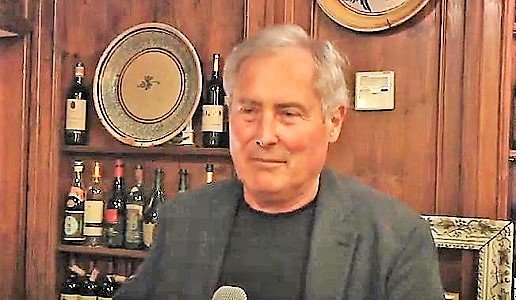From the beginning, great preparation, passion and enthusiasm were the basis of Silvano Formigli’s work and when he decided to retire it, perhaps, marked the end of an era of great passion related to the world of wine.
It has been more than 40 years but I can still remember perfectly the moment when I met Silvano Formigli. It was in 1982 and I was introduced to him one evening by a friend we had in common, Enrico Rinaldi, who worked as a salesman in Rome. Silvano had only recently become responsible for sales at Castello di Ama, which at the time was a lesser-known Chianti estate that was making its debut on the market. “I must introduce you to a fantastic guy – Enrico told me – someone who knows everything about wine”.
We met at a wine bar, in front of the first wines produced by Castello di Ama, a Chianti Classico 1979 and a Chianti Classico Vigneto Bellavista 1978. At the time, the trend was for bold and slightly “jammy” wines, as they were referred to then. These wines however, were the exact opposite, if possible. Silvano, with his unmistakable Tuscan accent, described these wines perfectly to me, who was still a novice even if I knew a thing or two. “The vineyards sit at an altitude of 500m above sea level and so it is logical that the wines express themselves in this way. They are cutting and agile, with an evident acidity. But then, true Chianti Classico has always been this way”.
We became fast friends and from then on, over the following decades, we established a tight relationship of reciprocal esteem and a certain complicity. When Silvano left Castello di Ama at the end of the 1980s, I was possibly sorrier than he was. “But I have an idea in my head, to distribute wines from small estates. I will call it Selezione Fattorie, with the letters S and F recalling my initials, Silvano Formigli. Good idea, isn’t it?”. This was in 1989 and Selezione Fattorie kicked off with some high-flown names, Castello di Fonterutoli, just to name one. Then there was Abbazia di Rosazzo and the extra-virgin olive oil of Giachi di Mercatale, among many others.
Thanks to his experience at Castello di Ama, Silvano became a star in the wine market, known and respected by all, especially his clients. And throughout the 1990s everything went great guns. Then a certain fatigue set in and work became increasingly more demanding for him, despite the constant help he received from his wife and the involvement of his children.
At the start of the new millennium I received a phone call. “You know; I’ve decided to step aside. I will be more of a grandfather and will work a lot less”. Perhaps, with him was ending an era of great passion related to the world of wine. That romanticism that was at the center of his and my work, which was increasingly becoming more professional, perhaps, but also a lot less enthralling, from an emotional point of view.
A few years later, I left Gambero Rosso for similar reasons, and at the time Silvano’s words became clearer to me. I went on to do other things, to reinvent myself, but those formidable years were gone for good.




